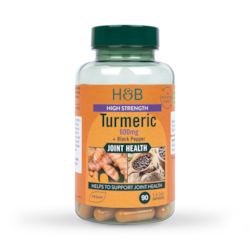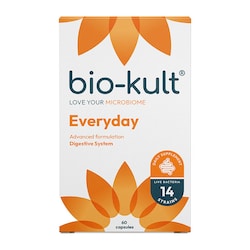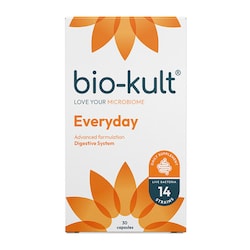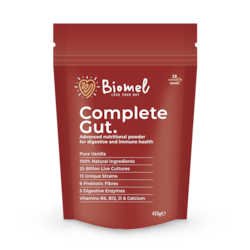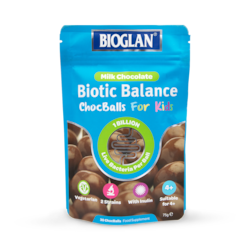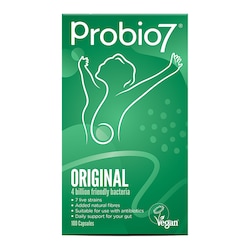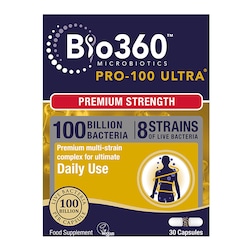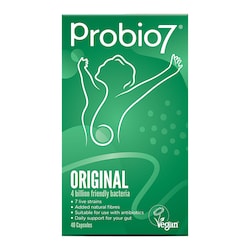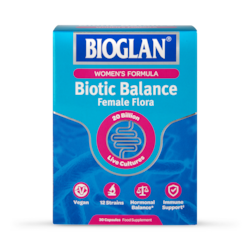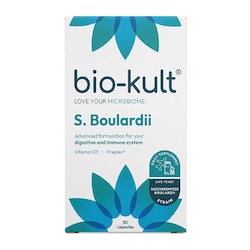15% off £25 OR 20% off £35
Code:OFFER
Food & your digestive system: Everything you need to know

Find out more about digestive system and how to improve your digestion by using our simple home remedies & foods which should be avoided.
Summary
1Improving your digestion
Maintaining good gut health can go a long way in making sure your digestive system is working as it should be. Signs that you have poor digestive...
2How long does it take to digest food?
Typically, from start to finish, your body will take around 6 to 8 hours to digest a full meal. The time can vary though as different types of...
3Why is digestive health so important?
Digesting food properly and efficiently is one of the most important functions your body can perform. We gain essential nutrients needed for growth...
Ever wondered how long it takes to digest food? Or perhaps you’re after some tips to improve your gut health? Learn the basics about your digestive system and what you can do to keep it happy and healthy in our detailed guide below.
Why is digestive health so important?
Digesting food properly and efficiently is one of the most important functions your body can perform. We gain essential nutrients needed for growth, development and cell repair from food, plus most of our energy comes from what we eat1. Ensuring our digestive system is in tip-top condition is therefore absolutely vital for our overall health!
Exactly how long does it take to digest food?
Typically, from start to finish, your body will take around six to eight hours to digest a full meal. The time can vary though as different types of food take different lengths of time to digest.
In general, fibrous food like grains and beans, as well as most meat and dairy, will take around twice as long to digest as fruit and vegetables2. Digestion times also massively depend on whether you are eating solids or liquids, with soups and juices taking less time to process than hard foods.
Regardless of what you eat and in what form, everything you consume makes its way from your mouth into your bloodstream or rectum via the following route3:
Once you’ve chewed and swallowed your food, it travels down the oesophagus until it reaches something called the lower oesophageal sphincter.
This is a ring-shaped muscle which acts as a trap door to your stomach. When food approaches the sphincter, it’ll relax and allow it to pass through.
This is where food is mixed with digestive fluids. These are a mix of acids and enzymes which are able to breakdown the food into smaller pieces which then journey on into the small intestine.
After food is moved from the stomach into the small intestine, it’s broken down into even smaller particles with more fluids and bacteria from both the small intestine and organs like the liver, pancreas and gallbladder.
Any good vitamins and minerals are absorbed through the walls of the small intestine into your bloodstream. Waste products your body has no use for are pushed into the large intestine.
The large intestine’s main job is to absorb water from the waste products transferred from the small intestine. What’s left is then made into faeces which are moved to the lower end of the large intestine (the rectum) and, eventually, back out of your body when you go to the loo.
Improving your digestion
Maintaining good gut health can go a long way in making sure your digestive system is working as it should be.
Signs that you have poor digestive health can include bloating, constipation and diarrhoea. Thankfully, there are several things you can to do support it:
Eat a balanced diet
Eating the right foods in the correct amounts will definitely improve your digestive health. Avoid consuming too much of the foods that are trickier to digest (e.g. red meat, dairy and high fat items like nuts), get plenty of fibre in your diet and make sure you accompany every meal with water4.
Chew food properly
As liquids are easier and faster for our bodies to digest than solids, chewing your food for a decent amount of time is a great way to improve digestion5. This is especially important if you experience heartburn.
Take a supplement
A digestive health supplement like acidophilus, probiotics or a plant-based enzyme can boost the amount of good bacteria and enzymes in your gut6. These are essential for efficiently breaking down food. Liquorice can indirectly help digestion by supporting organs involved in the process (such as your liver).
We always recommend consulting a medical professional before you begin regularly taking digestive supplements just to ensure that they’re right for your needs.
Frequently experience digestive issues or pain in your guts after eating? You may want to schedule an appointment with your GP as you could have an intolerance or underlying health issue. If you suffer from indigestion, take a look at our guide to tackling heartburn.
- https://www.verywellhealth.com/best-digestive-enzymes-4688740
- https://blog.pzizz.com/how-long-does-it-take-to-digest-food-333f022561ef
- https://www.niddk.nih.gov/health-information/digestive-diseases/digestive-system-how-it-works#howdoes
- https://www.healthline.com/nutrition/ways-to-improve-digestion
- https://www.healthline.com/nutrition/ways-to-improve-digestion#section7
- https://www.verywellhealth.com/best-digestive-enzymes-4688740


